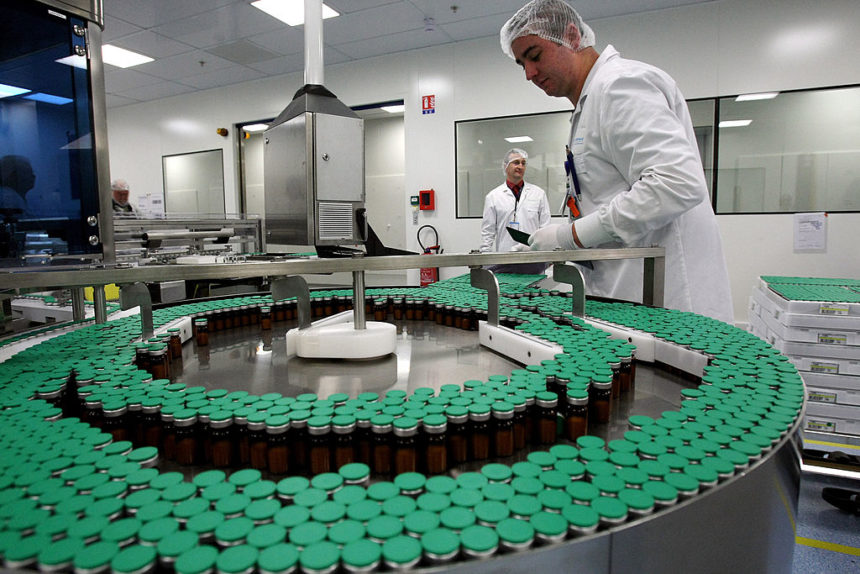The U.S. has announced an initiative to invest billions of dollars in boosting mRNA manufacturing capacity, in the hopes of eventually producing one billion COVID-19 vaccine doses per year.
The initiative is part of a new plan, details of which were announced by the Biden administration on Wednesday, to work with the pharma industry to address vaccine equity. While it will help companies like Moderna and Pfizer expand manufacturing capacity domestically, it will also boost vaccine access globally.
“This is about assuring expanded capacity against COVID variants and also preparing for the next pandemic,” Dr. David Kessler, chief science officer on the White House COVID-19 response team, said in a statement. “The goal, in the case of a future pandemic [or] a future virus, is to have vaccine capability within six to nine months of identification of that pandemic pathogen, and to have enough vaccines for all Americans.”
Kessler added the government is seeking to “enter a historic partnership” with the pharma industry in order to achieve that goal.
The news arrives in the wake of Pfizer’s announcement that it will facilitate the production and subsidize the cost of its COVID-19 antiviral pill in 95 low-income countries. Merck previously made a similar pledge for its own pill.
The announcements come after weeks of mounting pressure on large vaccine makers to boost access to vaccines in countries lacking supply. Conversations over intellectual property rights – and, specifically, whether Moderna and other companies would follow through on promises to not enforce patents during COVID-19 – have intensified in recent weeks.
Biden has pledged to get 70% of the world vaccinated by September 2022. Currently, just over 52% of the world population has received one dose of the vaccine, according to Our World in Data. In low-income nations, under 5% of people have received one dose.
Singapore, United Arab Emirates, Portugal, Brazil and the U.S. have the largest percentages of their citizens fully vaccinated. In the U.S., that number is around 60% of the population.
At a virtual hearing Wednesday, Kessler pointed to Merck’s and Pfizer’s transfer of the licenses for their antiviral drugs to the Medicines Patent Pool as a step companies should make for vaccines as well. By way of comparison, he referenced efforts in the 1990s that made versions of HIV drugs available in low-income nations.
“It took us several decades to get this right with HIV,” Kessler noted. “The chair will remember the efforts we went through in the 1990s finding those drugs and spending a good decade to figure out how to make those available. We need to have generics available and I think there are tools to do that.”
Moderna is currently negotiating an agreement through which it would sell millions of doses of its vaccine to COVAX at a much lower price – about $7 per dose – than what it charged the U.S. The tentative agreement would be part of the federal government’s goal of reaching the 70% global vaccination level by 2022.
Gary Disbrow, director of the Biomedical Advanced Research and Development Authority (BARDA), part of the Department of Health and Human Services, emphasized the need for the Biden administration to think broadly about its coordination with pharma.
“It’s important for companies to transfer rights where they can to expand capacity, but it’s more important to support all critical components to manufacture vaccines,” Disbrow said. “We need to make sure we’re expanding capacity for raw materials, needles, syringes and vials. They will not only support domestic capacity, but our global partners will need those materials as well.”
The billions of dollars in funds announced Wednesday, which will be allocated as part of the $1.9 trillion American Rescue Plan, will aim to help mRNA companies expand facilities and staff, as well as boost training.
“The world needs these vaccines, and no one company can do it,” Kessler said.








